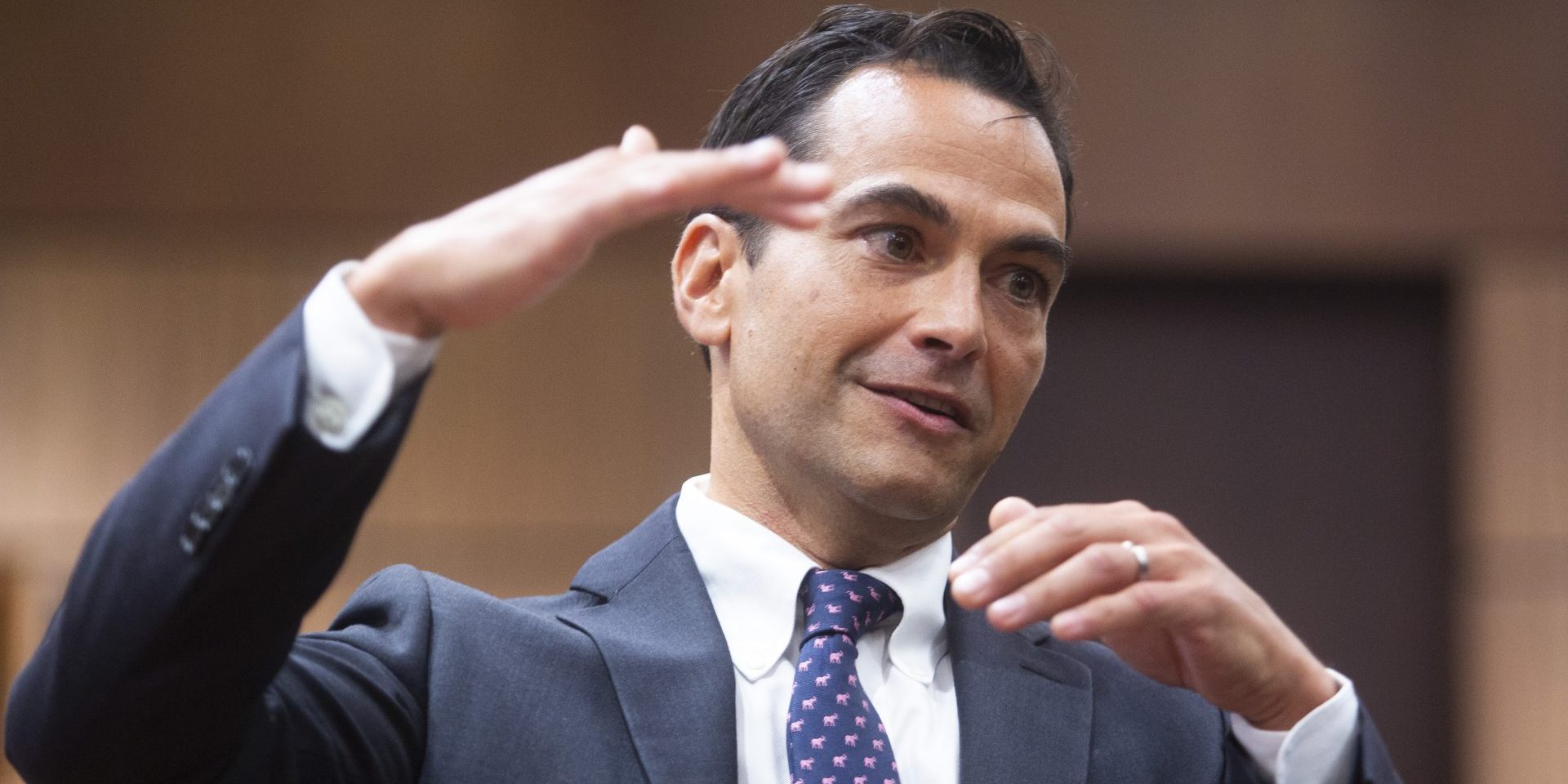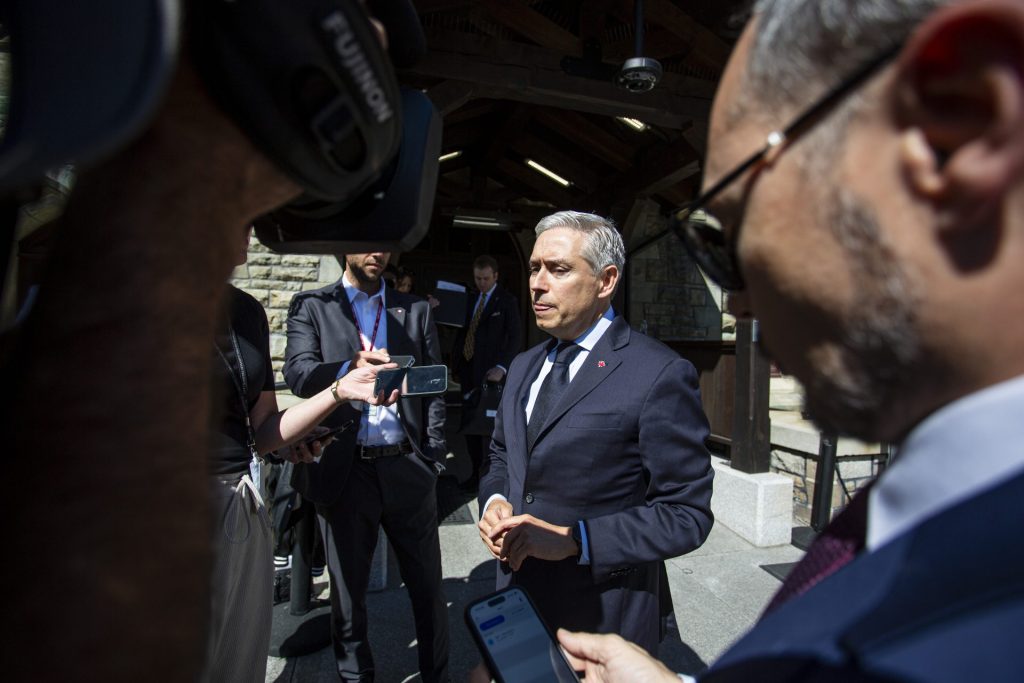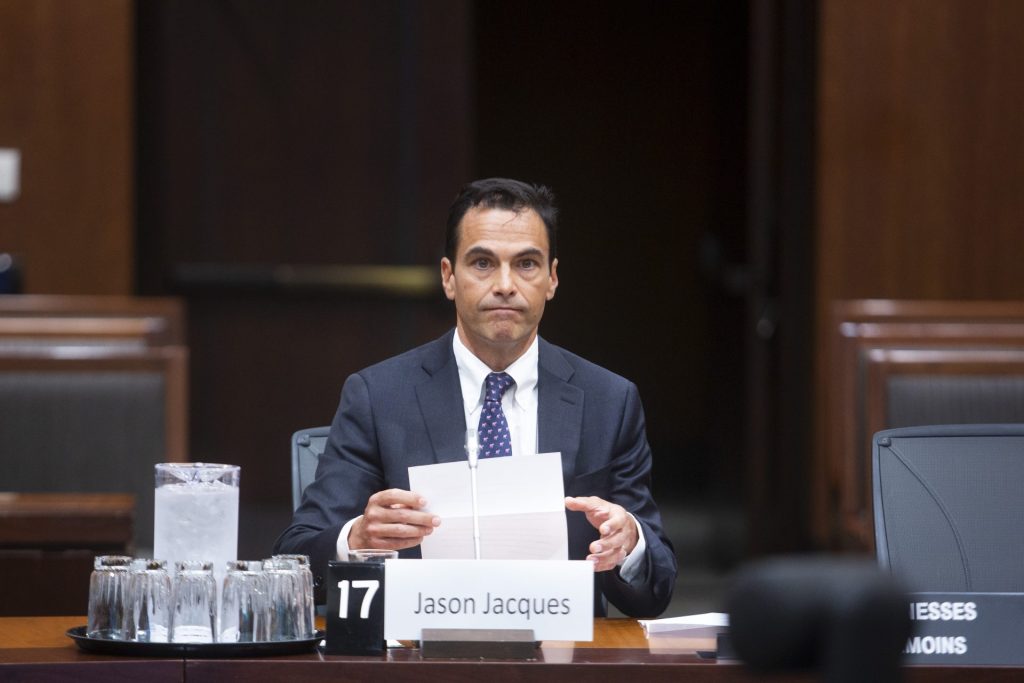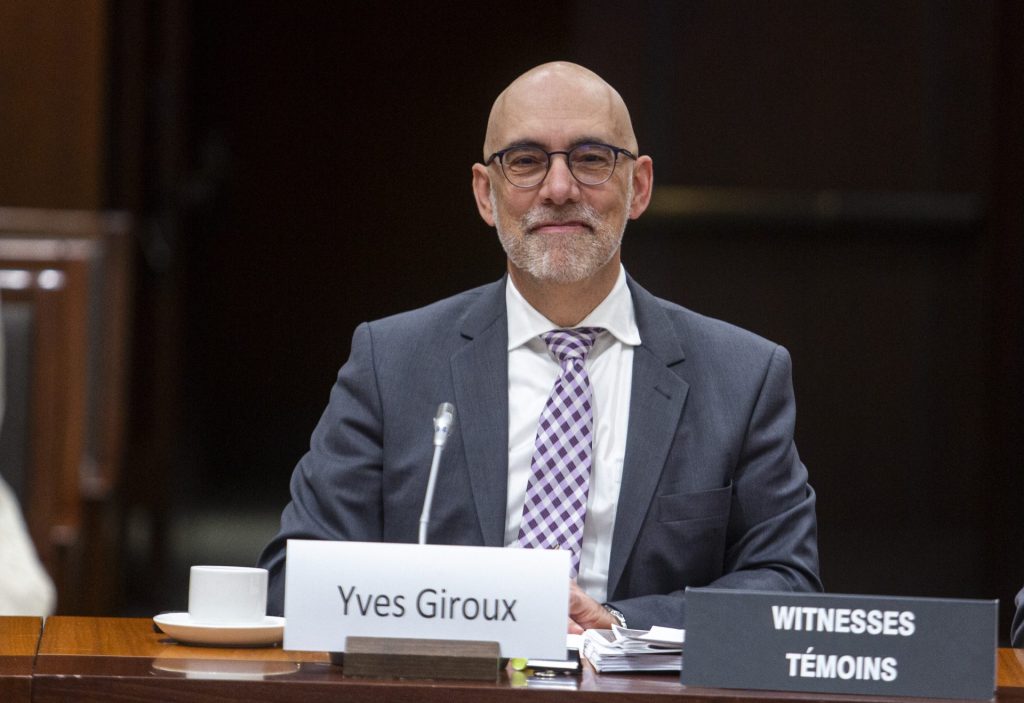New budget watchdog says ‘deficit will absolutely be higher’ than forecast, feds have no clear fiscal anchors

Interim Parliamentary Budget Officer Jason Jacques says the deficit will “absolutely be higher” than previous forecasts, and that his office does not know if the government has committed to any fiscal anchors.
Jacques told MPs at the House Government Operations and Estimates Committee on Sept. 16 that his office will publish an economic and fiscal baseline next week, including a five-year deficit track.
The PBO estimated in June that the government would report a deficit of $46-billion, amounting to 1.5 per cent of Gross Domestic Product (GDP) in 2024-25. The report noted at the time that this was $4.3 billion lower than its projection in the 2025 Election Proposal Costing baseline and $2.3-billion lower than Finance Canada projected in its 2024 Fall Economic Statement.
Conservative MP Kelly Block (Carlton Trail—Eagle Creek, Sask.) asked Jacques whether the deficit is likely to grow “given the Liberals’ election plans included $20-billion in tariff revenue, and now there are no counter tariffs.”
Jacques, who was appointed interim PBO on Sept. 2, said he couldn’t go into details, but said it would “absolutely” grow.
“I won’t get into the precise numbers, but in comparison to our last medium-term forecast, the deficit will absolutely be higher, and the countervailing tariffs are certainly one part of that. The other part of it is additional spending,” Jacques replied.
During the election campaign Prime Minister Mark Carney (Nepean, Ont.) pledged to push the federal government’s deficit to 1.96 per cent of GDP in the 2025-26 fiscal year, down to 1.83 per cent of GDP the following year, and to 1.35 per cent by 2028-29, and promised to balance the operating budget over the next three years. Carney has made some major spending commitments since the election, including $9-billion in additional defence spending, $13-billion for the new Build Canada Homes agency, among other pledges to help trade-exposed sectors.

How a large deficit might affect inflation and Canadians’ lives depends on how the government chooses to spend the money, Jacques said, details that will only be clear in the federal budget. Finance Minister François-Philippe Champagne (Saint-Maurice—Champlain, Que.) announced the government’s fiscal blueprint would come on Nov. 4 after ministers previously indicated it would be in October.
When MPs pressed the PBO on when those details as well as fiscal priorities would be revealed, he again pointed to the highly-anticipated federal budget. The government hasn’t presented a budget since April 2024, and last offered a fiscal update in December 2024 when it outlined a ballooning deficit of $61.9-billion for the previous fiscal year.
“Officially, within the office, I don’t know that the government currently has fiscal anchors, which, of course, causes the people that I work with a considerable degree of concern at this point,” Jacques said.
The fiscal anchor refers to a government objective, or a target guiding decisions around spending, taxation and borrowing.
Jacques said the government traditionally spells out its fiscal priorities in the lengthy budget documents so the PBO has a clear sense of precisely what the fiscal anchors are.
“If the fiscal anchor continues to be balancing an operating budget, hopefully at that point there will be a definition of what that operating budget actually means,” he added.

In May’s Speech from the Throne, the government introduced an operating budget focus, and committed to balancing this “budget” by 2028-29 by “cutting waste, capping the public service, ending duplication, and deploying technology to improve public sector productivity.”
It also pledged to reduce the annual growth in operating spending to two per cent from the current annual growth rate of nine per cent.
In June, the PBO referred to this as a new “operating budget fiscal anchor,” but said it was unclear what the government considered “operating” or “non-operating/capital” spending. The report highlighted that Ottawa had not defined how the new operating budget targets would be measured, underlining the PBO is unable to assess whether the government’s recent fiscal policy initiatives outlined in main estimates, supplementary estimates, ways-and-means motion are consistent with achieving its new fiscal objective.
The previous Liberal government’s budget committed to reducing the debt-to-GDP ratio over the medium-term, and maintaining annual fiscal deficits below one per cent of GDP. According to Jacques, those priorities have yet to be reiterated by the current government.
“We haven’t seen a clear definition of what would fall into capital and what would fall into operating so at this point, it’s impossible for us and for you as parliamentarians to assess the likelihood or probability of the government hitting any fiscal target,” he said.
The prime minister has proposed separating federal spending into two budgets, one being operating budget which would include day-to-day spending, transfers, salaries and the other being capital budget which would constitute anything that builds an asset, held directly on the government’s own balance sheet as explained in the Liberal platform. This will include direct investments the government makes in machinery, equipment, land, and buildings.
Jacques was appointed to his new post by Carney for a six-month term. He was director-general of economic and fiscal analysis at the PBO prior to his appointment, and has worked with the Privy Council Office, Finance Canada, Treasury Board Secretariat, and Bank of Canada in the past.
He also told MPs that while his office was exempt from the government’s spending review—tasking most departments with making 15 per cent cuts over the next three years—the PBO has decided to voluntarily make a five per cent cut to its budget starting in 2026-27 on an ongoing basis. That means a significant down payment “from the people who can afford it most, and that’s the executives at the top” Jacques said, which includes him having an immediate $50,000 reduction in his salary.
“In comparison to where we were even six months ago or eight months ago, the context has changed, and I take the prime minister at his word that it’s going to require sacrifices from all of us. I’m in an incredibly privileged situation where I can take a $50,000 pay cut, and hopefully it offsets some of the operating deficit,” he said.
New PBO says he’ll follow his predecessor‘s footsteps
When asked by MPs to share his account of how he got the job, Jacques said he received a call from the Prime Minister’s Office on Aug. 30 of the Labour Day weekend.

“My immediate response was, ‘I know someone who’s really qualified, who is going to be unemployed on Wednesday, who would definitely be an incredibly talented interim Parliamentary Budget Officer, and that person is Yves Giroux,’” Jacques said.
Giroux left his position as his seven-year term expired on Sept. 2.
“If I was to take the job… I would continue to do everything that Mr. Giroux had been doing up to that point, so there’d be no change in terms of the focus on excellence … transparency, and the frequency of reporting,” Jacques told MPs.
According to Liberal MPs involved in budget consultations across Canada, major institutional investors are asking the federal government to give them a reason to invest more at home in the upcoming fall budget. Jacques flagged that his office will publish an analysis of federal infrastructure spending later this week.
He also said the PBO will stick with traditional international definitions even if the government presents “operating” and “capital” budgets separately.
ikoca@hilltimes.com
The Hill Times






 LICENSING
LICENSING PODCAST
PODCAST ALERTS
ALERTS













